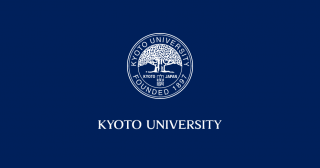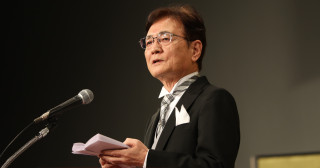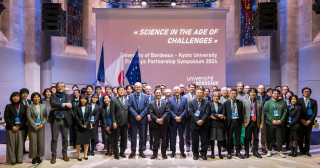Under the "Short-Term Student Exchange -- Nippon Discovery (SEND) Program", nine Kyoto University students took part in the 2015 Spring School hosted by Universitas Indonesia (UI), also known as the University of Indonesia. During their two-week visit, participants attended classes in Indonesian language and culture, and joined local students in a reciprocal learning program (including a joint presentation) about Japanese language and culture. Field trips were also organized to enrich their cultural experience.
By having them work with UI students to learn about Japanese language and culture, the two-week program enabled the participants to not only deepen their understanding of Indonesia but also reflect on their own country from a fresh perspective, leading to new insights. It is hoped that the participants will build on their first-hand experiences and new-found understanding of Indonesian culture and continue to develop friendships with UI students based on mutual trust.
Report from a Participating Student
Jun Tsuruta
Assistant Group Leader for the University of Indonesia Spring School
First-year student, Graduate School of Agriculture, Kyoto University
(Report presented at a debriefing held on Thursday 26 March 2015)
I signed up for this program out of a desire to experience a tropical environment and learn about Islam.
The Spring School comprised Indonesian-language lessons in the mornings and classes in various subjects offered by UI's Japanese Language Department in the afternoons. Throughout the program, our enthusiasm for learning the local language remained high, thanks to the opportunities we had to converse with native speakers at restaurants and in the guesthouse after lessons. Meanwhile, the Japanese-language program included a requirement to develop joint student presentations for delivery on the final day, so we worked with UI students after classes to prepare for them.
Outside the classroom, we were constantly reminded that we were in an Islamic society; a huge mosque stands on the UI campus, and pork and alcoholic beverages were rarely to be seen. Regarding the religion of Islam, we learned from local students that it actually comprises several different sects, each with its own set of beliefs, and that, while undoubtedly predominant, it is not practiced by the entire population -- Indonesia is actually a multi-religious state, we were informed.
During a sociology class, given as part of the Japanese language program, the instructor remarked that, in any society, the most populous group tends to be the least sensitive. A multi-religious, multi-cultural nation will inevitably incorporate religious and cultural minorities. What often happens in such a society, according to the instructor, is that those in the majority fail to consider the needs of others, resulting in the rights of minorities being ignored. This observation struck me as an extremely important one – and one that I should strive to remember at all times.
Throughout this program, we were very fortunate to have the amazing support of UI students and faculty. My perceptions of Islam and Indonesia have been transformed as a result of talking at length with them about various topics. I hope to stay in touch with those wonderful people and to learn more from them about their country and religion.

Engaged in discussion with UI students

Practicing Arumba

A student presentation in progress

Commemorative photo taken after the final presentations
About the Short-Term SEND (Student Exchange-Nippon Discovery) Program
The SEND Program is aimed at training students to become experts who can build cultural bridges between Japan and ASEAN countries. In exchange for the opportunity to study abroad in order to learn a different language and culture, students assist in teaching the Japanese language and introducing Japanese culture, thereby promoting cross-cultural understanding. Through these activities, the Program is designed to cultivate an interest in Japan among students in the host countries while fostering the development of human resources capable of playing active roles on the world stage and helping to build trust among the next generation of future leaders.
For FY2014, the Short-Term SEND Program was operated as part of the "Rediscovering Japan through Collaboration in the Open ASEAN+6 -- International Human Resource Development Centering on the SEND Program" with the support of special scholarships from the Japan Student Services Organization (JASSO) and University Grants from the Japanese Government.





